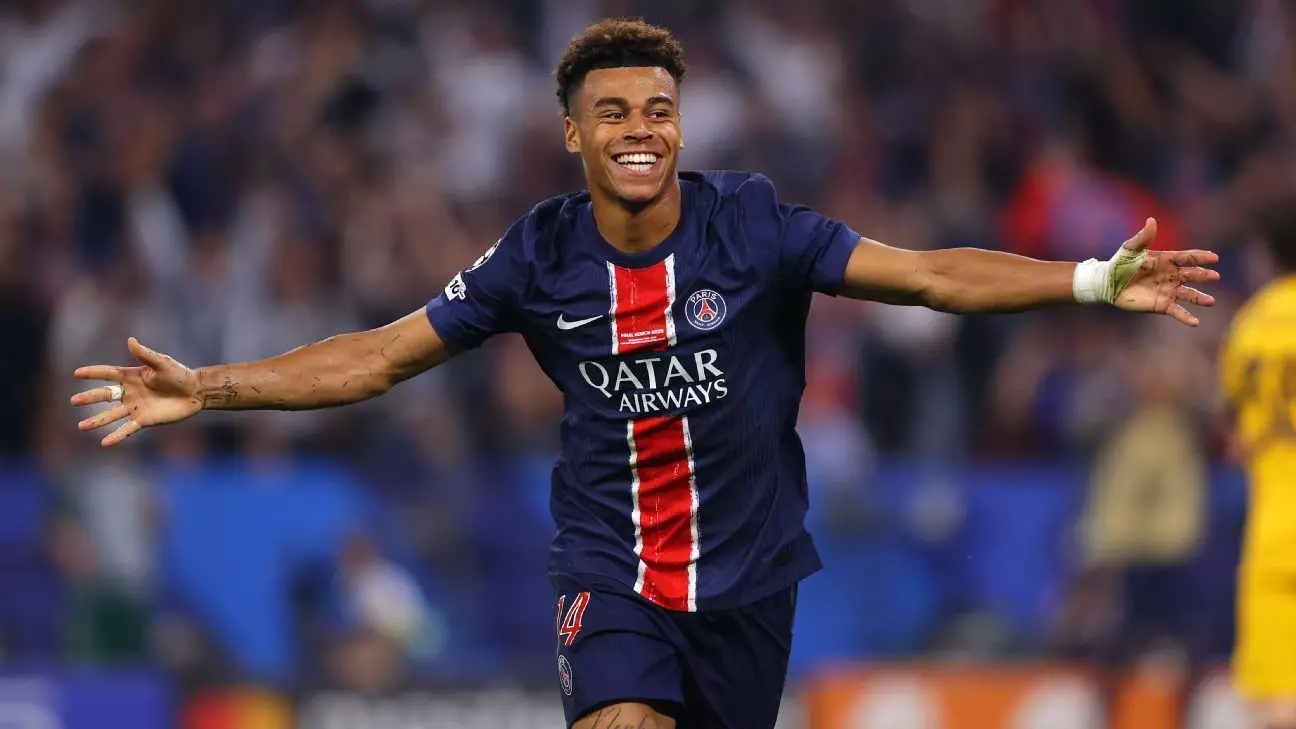In an extraordinary display of dominance, Paris Saint-Germain (PSG) claimed their maiden Champions League title with a resounding 5-0 victory over Inter Milan in Munich. This triumph not only secured the coveted trophy but also marked the largest winning margin in the history of the final, a record that stretches back to 1956. With this historic win, PSG completed a prestigious treble, having already claimed the Ligue 1 and Coupe de France titles earlier in the season. Such accomplishments underscore the team’s evolution and aspirations on the grand European stage.
A New Era of Youth and Talent
The trajectory leading to PSG’s European success tells a compelling story of transformation. For many years, the club became synonymous with heavyweight signings like Lionel Messi, Neymar, and Zlatan Ibrahimovic. Their quest for Champions League glory seemed to hinge on attracting established superstars, yet the narrative took an unexpected twist when PSG shifted focus to nurturing young talent. The presence of 19-year-old Désiré Doué during the final was emblematic of this change; Doué’s two goals not only etched his name into history as the first teenager to score twice in a Champions League final since Eusebio but also showcased PSG’s capacity to build a future-oriented squad.
Strategic Shift Paying Dividends
The strategic pivot away from high-profile acquisitions to cultivating a youthful core is noteworthy. It speaks volumes of coach Luis Enrique’s vision and adaptability, especially given the irony of triumphing in a season marked by the absence of Kylian Mbappé—who departed for Real Madrid with dreams of securing continental glory. In achieving their dream, PSG demonstrated that success in football is not merely about star power; it’s also about cohesion, strategy, and a commitment to long-term development.
Under the Tactical Mastery of Luis Enrique
Luis Enrique’s leadership has been pivotal in transforming PSG’s fortunes. Having previously experienced success with Barcelona, Enrique brought with him a wealth of experience and tactical acumen. His ability to integrate youth into the squad has breathed new life into the team’s playing style, resulting in a squad that is not only competitive but also entertaining. The attacking flair displayed against Inter Milan highlighted the players’ confidence and skill, echoing the principles imbued by their coach.
PSG’s Place in European Football History
This triumph positions PSG among an elite class of European clubs, making them only the second French team to lift the treasured European Cup—joining the ranks of Marseille, who achieved this feat in 1993. The victory resonates beyond statistics and records; it symbolizes a shift in fortune and belief. Fans can now rally around the promise of a new legacy, one that combines the rich history of French football with the ambition to remain at the pinnacle of European competitions.
As PSG savors their hard-earned victory, the footballing world watches closely, eager to see how this transforming powerhouse will continue to evolve. The narrative of PSG is no longer just about the individual brilliance of superstars; it now celebrates the collective strength of a dedicated team built for sustained success.

